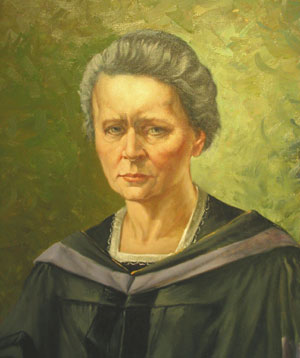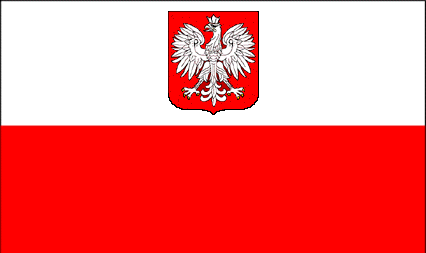|
 A noted chemist and physicist, Marie Sklodowska Curie was born in Warsaw, Poland, on November 7, 1867. She was the youngest of five children. Her parents, Wladyslaw and Bronislawa Sklodowski, were both distinguished educators. Her father was the president of Lublin University, and her mother taught in Warsaw universities.
A noted chemist and physicist, Marie Sklodowska Curie was born in Warsaw, Poland, on November 7, 1867. She was the youngest of five children. Her parents, Wladyslaw and Bronislawa Sklodowski, were both distinguished educators. Her father was the president of Lublin University, and her mother taught in Warsaw universities.
Marie discovered her love for physics and chemistry early in life and dreamed of studying at the Sorbonne, in Paris. She realized that dream and graduated from the Sorbonne in 1894. In 1895, Marie Sklodowska married Pierre Curie, who was a Professor of Physics at the School of Physics and Chemistry in the City of Paris. They became the parents of two daughters, Irene and Eve Denise. In 1898, the Curies announced the discovery of the elements polonium (named after Poland) and radium. Shortly after these discoveries, Marie was awarded her doctorate and later, after her husband's tragic death in 1906, was asked to succeed him in his professorship in physics at the Sorbonne, the first time such an honor had been awarded to a woman.
In 1903, Marie Sklodowska Curie, along with her husband, Pierre, was awarded a Nobel Prize for physics. In 1911, Madame Curie received a second Nobel Prize for chemistry, thus becoming the first person and only woman in history to be awarded two Nobel Prizes. In 1911, by appointment of a commission of scientists, Madame Curie prepared the international standard of radium chloride, which is preserved in the International Bureau of Weights and Measures. During Madame Curie's lifetime, she received over 125 degrees, medals and decorations from universities and organizations around the world.
Marie Curie died on July 4, 1934. In an effort to honor this internationally-renowned chemist and physicist, her remains were moved from their original resting place to be enshrined in the Pantheon, France's memorial to the nation's "great men." That event took place on April 20, 1995, where noted men and women of science gathered for the ceremony.
Madame Curie's daughter Irene was also a gifted chemist. She shared a Nobel Prize with her husband, Frederick Joliot, in 1935, continuing the accomplishments of her parents in the fields of physics and chemistry.
|

